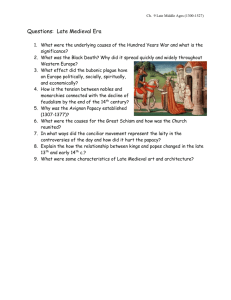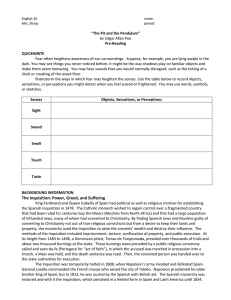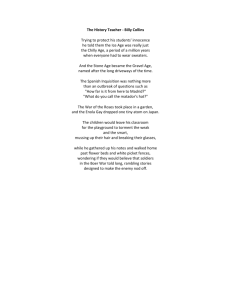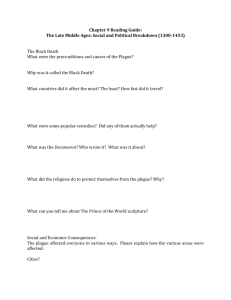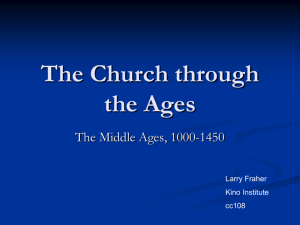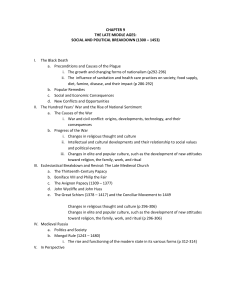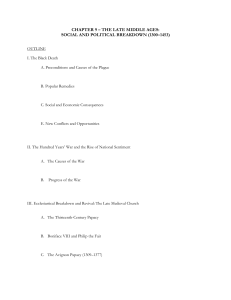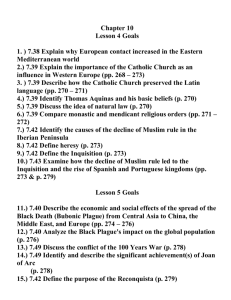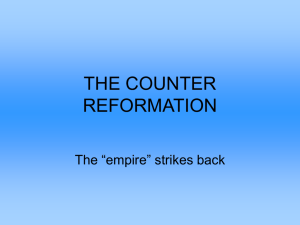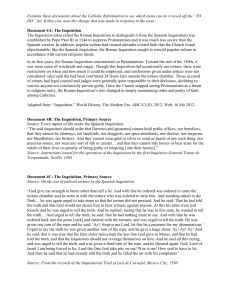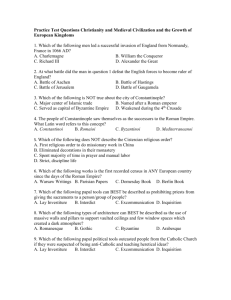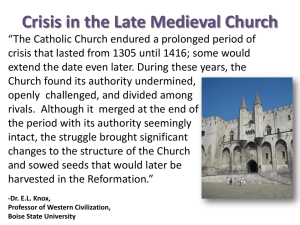Word - Saint Mary`s Press
advertisement
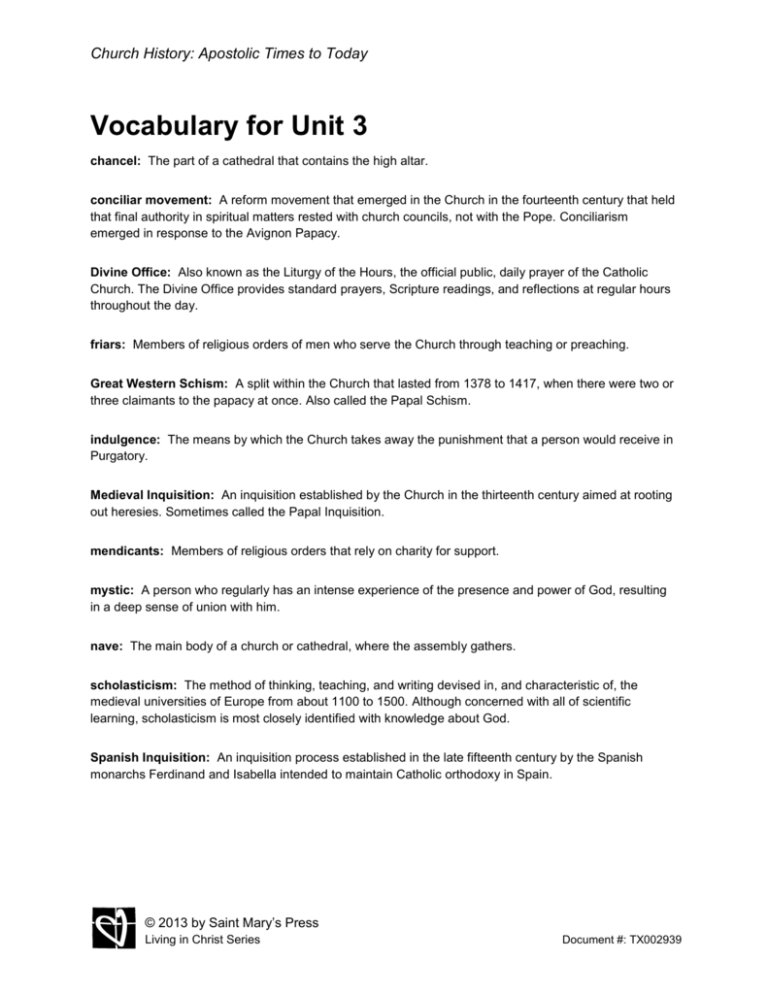
Church History: Apostolic Times to Today Vocabulary for Unit 3 chancel: The part of a cathedral that contains the high altar. conciliar movement: A reform movement that emerged in the Church in the fourteenth century that held that final authority in spiritual matters rested with church councils, not with the Pope. Conciliarism emerged in response to the Avignon Papacy. Divine Office: Also known as the Liturgy of the Hours, the official public, daily prayer of the Catholic Church. The Divine Office provides standard prayers, Scripture readings, and reflections at regular hours throughout the day. friars: Members of religious orders of men who serve the Church through teaching or preaching. Great Western Schism: A split within the Church that lasted from 1378 to 1417, when there were two or three claimants to the papacy at once. Also called the Papal Schism. indulgence: The means by which the Church takes away the punishment that a person would receive in Purgatory. Medieval Inquisition: An inquisition established by the Church in the thirteenth century aimed at rooting out heresies. Sometimes called the Papal Inquisition. mendicants: Members of religious orders that rely on charity for support. mystic: A person who regularly has an intense experience of the presence and power of God, resulting in a deep sense of union with him. nave: The main body of a church or cathedral, where the assembly gathers. scholasticism: The method of thinking, teaching, and writing devised in, and characteristic of, the medieval universities of Europe from about 1100 to 1500. Although concerned with all of scientific learning, scholasticism is most closely identified with knowledge about God. Spanish Inquisition: An inquisition process established in the late fifteenth century by the Spanish monarchs Ferdinand and Isabella intended to maintain Catholic orthodoxy in Spain. © 2013 by Saint Mary’s Press Living in Christ Series Document #: TX002939
